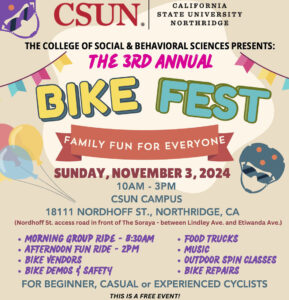
Photo courtesy of Giovanni Batz.
Hispanic Heritage Month is a time to celebrate the journeys of alumni on the path to making a profound difference in the world.
As part of a series of profiles, CSUN Newsroom spoke with Giovanni Batz ’08 (Political Science), an assistant professor of Chicana and Chicano Studies at UC Santa Barbara. The alumnus reflected on his time at CSUN and how it set him on his career path.
When asked about finding his way to academia, Giovanni Batz laughs. “I think it was an accident,” he said. “I was born and raised in L.A. and went to school, and one of the things people tell you is to go to college,” he noted. “But then, what’s next, right? I didn’t know what to do.”
Batz said the courses he took at CSUN ignited his interest in Central America, specifically Guatemala, from where his parents emigrated. “I learned more about Central American history, and I learned more about myself,” he said. “Having been born in the U.S., at that point in time a lot of people weren’t talking about Central America, the way that we do today.”
Batz graduated from CSUN with his bachelor’s degree in political science with a minor in history, the first in his family to graduate from college. He went on to get his master’s degree in Latin American studies, then his Ph.D in Social Anthropology, both at the University of Texas, Austin.
Batz currently teaches courses at UC Santa Barbara with a focus on immigration at the U.S./Mexico border and an introductory course to Latin American and Iberian studies. He also recently published his second book, his first in English, based on more than a decade of research of how extractivist industries such as hydroelectric plants are affecting communities in Latin America, particularly indigenous populations.
Recently, Batz said he was invited to participate as an expert in a consultation with the U.N. Committee on the Elimination of Racial Discrimination and the U.N. Committee on the Protection of the Rights of All Migrant Workers and Members of Their Families, scheduled for this fall at his other alma mater, the University of Texas, Austin. The discussion will address xenophobia and human rights violations against migrants in the Southwest U.S. border region. “These are like full circle moments that come in different ways,” Batz said.
Looking back on his career path, Batz points to Alicia Estrada, a professor of Chicana/o Studies at CSUN, as a role model. “Professor Estrada really inspired me to pursue higher education, further education, like grad school,” he said. “My time at Cal State Northridge set the foundation for me as a scholar.”




Comments are closed.